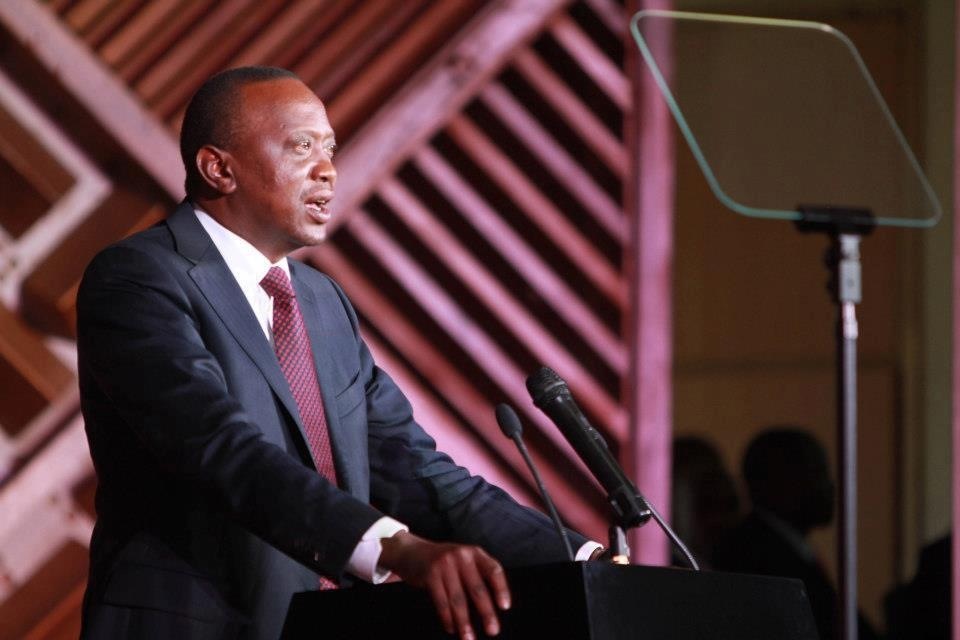We ought to be cautious not to mock God in the rush to attribute the election of the Jubilee Coalition to God. The Hon. Uhuru Kenyatta, president elect in his acceptance speech dedicated this victory to God.
There was jubilation in a service on Sunday where the Hon. William Ruto the deputy president elect said that God, in a special way, had given the Jubilee coalition victory in the March 4 General Election.
“The same God who gave us victory against all odds will do more exceedingly and abundantly for us. It will be more than the people of Kenya want. God is going to do great things for this country,” said Ruto. At one point, Ruto was given the microphone to address the congregation but he broke down and was unable to make any statement.
Was this God as he claimed?
I struggled when two of my friends George Ochieng Awuor and Capt. Samuel Gitari posted on Facebook, “The voice of the people is the voice of God!”, thus implying that in the declaration of Hon. Uhuru’s win, God had spoken and we must say Amen and move on!
Was this victory a miracle from God, so we should dedicate it to God? Was this God’s voice….? His own Voice?
I am unwilling to accept this notion without probing it, lest I find myself among those that mock God. St. Paul’s cautions: “Do not be deceived: God is not mocked, for whatever one sows, that will he also reap.”. (Galatians 6:7 ESV).
What are we to understand by mocking? The term to ‘mock’ in its scriptural sense, means to act hypocritically; to make false pretences or professions. So when we pretend to love and serve him when we do not, we mock God; when we act in a false manner, when we are insincere and hypocritical in our pronouncements, when we do not mean it. Anything that amounts to insincerity is mockery, anything that is only pretence, and does not represent the state of the heart. To mock in ordinary language means to dishonour. In this sense, it is that God is mocked by not being honoured. But the irony is that He is not dishonoured really, but only so far as man is concerned.
With that in mind, I question the notion: “Vox populi, vox dei” – the voice of the people is the voice of God”. This is an old Latin proverb. The whole concept of democracy is based on it. It has a lot of truth in it. There are numerous instances in history when people have brought down corrupt governments and monarchs once they have awakened. While this is so, there are also instances where the peoples’ voice was wrong.
In the 1932 German election, the Nazis got 37.4% of votes, becoming the largest party in the Reichstag (Parliament) by a wide margin. Here in fact Hitler came to power through peoples’ vote. Yet the agenda of his party was Crystal clear from the beginning. Should the mob’s voice also be called peoples’ voice? The mob is often wrong. What about the cases of lynching and destruction of public property? So here also the peoples’ voice is not right.
Like all proverbs “Vox populi, vox dei” also has an opposite proverb: ” Nec audiendi qui solent dicere, Vox populi, vox Dei, quum tumultuositas vulgi semper insaniae proxima sit.” It means, “those people should not be listened to who keep saying the voice of the people is the voice of God, since the riotousness of the crowd is always very close to madness.”
No one expressed this better or more eloquently than Alexander Hamilton, one of the founding fathers of USA who said: “The voice of the people has been said to be the voice of God; and, however generally this maxim has been quoted and believed, it is not true to fact. The people are turbulent and changing, they seldom judge or determine right.”
In the 2013 elections historical animosity, tribal consideration, aspiration embodied in particular candidates, special considerations and revenge were key determinants as to how people voted. So when we invoke God’s name on what we have done ourselves, when we follow our own whims and that are incongruent to His will, we will be adjudged to have mocked God. The people’s voice has the power to become God’s voice when they follow his principles.
There are several parallels for our context in this event in the life of ancient Israel, recorded in 1 Samuel 8. All the elders of Israel gathered together and came to Samuel the old prophet at Ramah, and said to him: “Now make us a king to judge us like all the nations.” (1 Samuel 8:5)
No one can blame the elders of Israel for rejecting Samuel’s sons as their leaders. They simply did not measure up. It was their reason for wanting a king that was suspect. In and of itself, the desire to have a king was not bad. God knew was this coming. Four hundred years before, God gave instructions to Israel about their future king (Deuteronomy 17:14-20).
But this drive to be “like all the nations” was a real let down. It implied their refusal to be under God’s direction. G. Campbell Morgan, commenting on Israel’s request observes: “This is the revelation of the supreme wrong. They had been chosen to be unlike the nations, a people directly governed by God.”
Even so, God may not impose his choice on us. God may give us what we want and then deal with us regarding the consequences, as he did with the Israelites. We get it wrong if we think the Lord’s granting the request will always be God’s approval. “Heed the voice of the people in all that they say to you; for they have not rejected you, but they have rejected Me…” the Lord tells Samuel (6-8).
God did not heed the voice of the people or grant their wish because their request was good or right, but because God was going to teach Israel through this. Sometimes, when we insist on wanting something bad, God will allow us to have it, and then we have to live with the consequences. Since Israel was demanding a king out of bad, carnal reasons, God will give them a bad, carnal king. Israel will get what they want, and will be hurt because of it.
God saw this and warned them: “Now therefore, heed their voice. However, you shall solemnly forewarn them, and show them the behavior of the king who will reign over them.” (9) The sense in this verse is that Israelites got their minds made up. Not even God would change this!
They will soon learn that information creates responsibility. In telling Israel this, Samuel was not only helping them to make an informed choice; he was increasing their accountability for making the right choice. They couldn’t say, “We didn’t know.”
God wanted Israel to know there would be problems connected with having a king. Even though In Israel’s view, they already had problems that would be solved by having a king. While those problems may have been solved, God wanted them to know a king would bring other problems. They should carefully weigh the benefits against the problems.
The LORD, through the prophet Samuel, is giving fair warning. He will take … He will take … he will take … He will take … he will take … He will take . . . And you will be his servants. And you will cry out in that day because of your king whom you have chosen: Why would Israel cry out? Because they wanted a king for unspiritual, ungodly reasons.
However, the people were in no mood to hear all this and they demanded a king despite God’s warning. They said, “No, but we will have a king over us, that we also may be like all the nations, and that our king may judge us and go out before us and fight our battles.” (19-22)
So the LORD said to Samuel a second time, “Heed their voice, and make them a king.” In a sense, this almost funny. They are rejecting the rule of God, yet they cannot escape it, because God will appoint their king. God will never step off His throne, even if man asks Him to.
There is a sense in which one can never be a leader without God sanctioning it. However, God lets us to freely choose the way we go; our own way or his way. Every one of the presidential candidates presented us with baggage that we would have to shoulder had they ascended to power. Now, if the challenge against Hon Uhuru Kenyatta collapses, Hon Uhuru and Hon. Ruto will be our God-given leaders of our choice. We will have to live with the consequences of choosing them to be our leaders. As my friend Njonjo Mue quipped, “Assuming they won, we as a nation have all volunteered to become their human shield against justice!”
I doubt we were voting God’s rule in 2013 elections. All indications are that we were both vile and benign. Yet, if we voted to resist the rule of God, we will soon discover that we do not benefit from our choice, in the way that we might have expected. When we resist God, we only hurt ourselves!
As we celebrate or lament the election, let’s remember that, as a former British Prime Minister, Stanley Baldwin once said. “There is no compulsion to accept the rule of God, yet ultimately there is no escaping it, for he appoints the king.”
Rev. Canon francis Omondi
Is an Anglican priest of
ACK All Saints cathedral diocese



